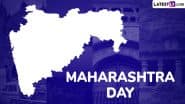New Delhi, Apr 30 (PTI) In a world where attention spans are shrinking, most powerful message is not the longest but the sharpest, Chief Justice of India Sanjiv Khanna on Wednesday said.
Legal aid awareness can neither be achieved through preaching or be riddled with jargon, he underlined.
CJI Khanna was speaking at an event organised by National Legal Services Authority (NALSA), marking felicitation of law students who participated in a pan-India reel-making and short film competition.
A scheme, he said, was only successful when it created an impact on the ground.
"Schemes must be conceptualised after listening those who are meant to serve."
Khanna said with nearly 80 per cent of Indians eligible for free legal aid, the country had the largest legal aid system in the world.
"What makes India's legal aid model more unique is that it not focusing on helping the accused but also extends supports to the victim and witnesses. It is important remember that policies and schemes do not operate in isolation. There are several schemes and policies but the issue is how do we implement them and how effectively they reach out to the beneficiaries," he said.
The CJI added, "Apart from intended beneficiaries, we must also engage with those who are working on grass root level. The paralegal volunteers, field activists etc who understand what are the real obstacles."
Technology gave us incredible tools and the explosion of short film content was proof, he noted.
"It is built to power to shape the opinion in 30 seconds or less. We should thus meet the audience where they are. Legal aid awareness content cannot be by preaching or jargon heavy. In a world where attention spans are shrinking, most powerful message is not the longest but the sharpest. Our outreach programmes must keep pace with the times," Khanna added.
The CJI said access to justice and justice are so closely connected that they cannot exist without each other.
True justice is only possible if everyone, regardless of their backgrounds, has equal access to legal system, he added.
"In India, the idea of access to justice has steadily evolved. It is no longer just seen as providing lawyer, it also means spreading legal awareness, empowering people of their legal rights and helping them bridge the gap between benefits guaranteed under the social and economic welfare schemes and actually accessing them. A major step in this journey was passing the National Legal Services Authority Act in 1987. This law has shaped the foundations of our legal systems," Khanna said.
Referring to the India Justice Report 2025, the CJI said the ratio of legal aid clinics in villages is 1:163; the ratio of para legal volunteers is 3 per lakh and national per capita expenditure on legal aid is Rs 6.46.
Justice Bhushan Ramkrishna Gavai, Executive Chairperson NALSA, said legal service institutions are the frontline of justice delivery for those who are voiceless, vulnerable and invisible to the system.
Law is not merely an instrument of order, Gavai said, but a living promise of justice which must be delivered with empathy, compassion and courage.
Justice Surya Kant shared traditional forms of legal awareness must be complimented by engaging mediums.
NALSA launched a pan-India reel-making and short film competition for law students to promote legal awareness among the public.
On the occasion of the birth anniversary of Krantijyoti Savitribai Phule, NALSA had announced the launch of the pan-India zonal reel making & short film competition for law students, titled “Connecting with the Cause.
(This is an unedited and auto-generated story from Syndicated News feed, LatestLY Staff may not have modified or edited the content body)













 Quickly
Quickly














